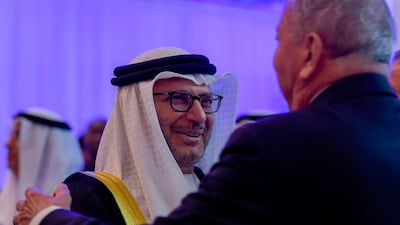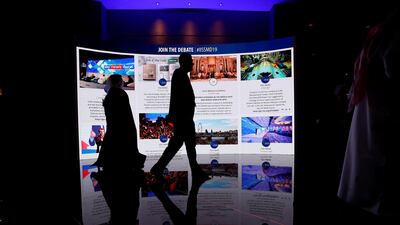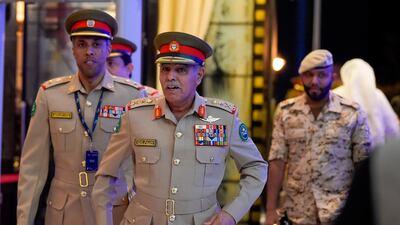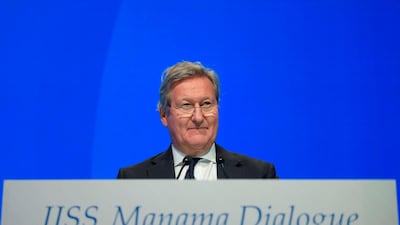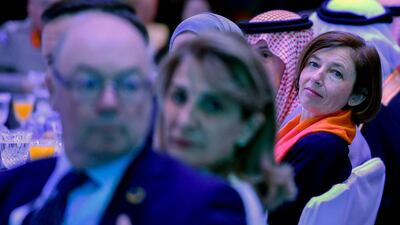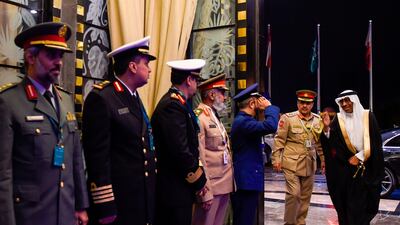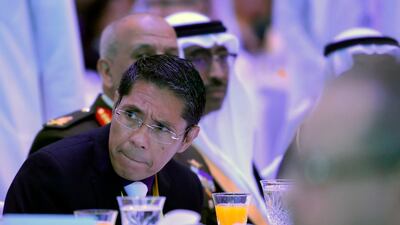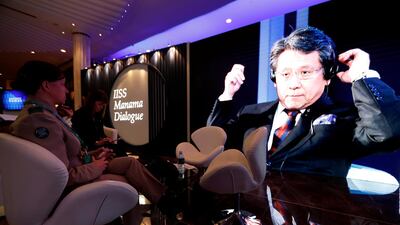A major gathering in Bahrain offered a rare glimpse into the dynamics of power politics in the Arabian Gulf as the region becomes a centre of global competition between the US and China.
Although threats by Iran contribute to a fluid scene, there was an underlying current of reservation among the region’s policy makers about the approaches adopted by Washington and Beijing.
The annual Manama Dialogue, organised by the International Institute for Strategic Studies, concluded on Sunday.
American officials found themselves in a politically awkward position of having to defend their commitment to some of their closest allies.
Many of Washington’s Arab allies have come to view US dealings in the Middle East as transactional and more prone to disregarding breaches of international law, especially those affecting countries’ security. The same criticism is being levelled in Washington about China’s ties in the Middle East and with other parts of the world.
John Rood, US Undersecretary of Defence for Policy, cautioned against “the opportunistic behaviour of Russia and China”. He urged the Gulf policy makers to take into account support by Beijing and Moscow for the regimes in Syria and Iran.
Referring to China’s economic Belt and Road Initiative, Mr Rood said: “We encourage the region to consider with clear eyes the predatory economic model that China is promoting as it pursues new projects.”

He also pointed to the $154 billion (Dh565.65bn) in US arms sales to the Middle East in the past five years as a sign of Washington’s increasing commitment to its allies, together with sending additional troops and $74 million in US spending to train 3,200 local security personnel.
The new US focus on publicising its arms sales to the region and the strength of its firepower was considered insufficient. It appears to be gaining little traction among many regional decision makers, according to Kori Schake, a specialist on alliances at the International Institute for Strategic Studies.
“The US is trying to say we are trustworthy and the best argument they could come up with is ‘we are militarily engaged’, and that is actually non-responsive to what people are worried about, which is the political unreliability of the US,” Ms Schake said
She said Washington needed to “craft a common narrative based on values we and our friends in the region share and having an honest discussion about where the overlaps and where the disparities are”.
In Manama, officials from Beijing touted China’s high-tech capacities, such as 5G telecoms networks and its Belt and Road Initiative. The mega economic plan to build trade networks across the world will connect much of the Gulf, as well as Iran, to Beijing.
China usually markets the initiative as improving links between countries through Chinese-built communications, fast railways, state-of-the-art airports and ports costing hundreds of billions of dollars.
Chinese officials faced tough questions from the region’s officials and political analysts, who said Beijing’s approach might not be politically sustainable because the country ignores Iranian threats that could undermine its own energy supplies.
Malik Dahlan, a Saudi professor of international law, said “harmonious relationships” that China touts as the basis for Belt and Road are undermined by Iran’s actions in the region.
Chinese officials ruled out any change in Beijing’s ties with Tehran. They said China was going ahead with at least $250bn in new investments in Iran despite the expected damage to its companies from US sanctions for doing business with the embargoed country.
Lanxin Xiang, head of China’s Centre of One Belt and One Road Studies, blamed the rise in tensions in the Gulf since last year on the US withdrawal from the 2015 nuclear deal.
“It is very hard for China to do anything,” Mr Xiang said. “This whole thing has to do with the US-Iran relationship.”
But Sheikh Salman bin Khalifa, Bahrain’s Minister of Finance and National Economy, said world powers need to stand up to breaches of international norms in the region.
“What is threatening the security of the region will be threatening the stability of the world,” said Sheikh Salman, who shared the opening panel with Mr Xiang.
"We can mention the impact on the oil sector and on maritime navigation," he said, referring to the September 14 attack on Saudi Aramco's oil plants claimed by the Iran-backed Houthi militia but blamed on Tehran. "All countries that have a relationship with this part of the world have to play a role to put an end to such practices."
The messages emanating from Manama are that alliances with the US are no longer being treated as open-ended, and that the region cannot help achieve China’s economic ambitions without political guarantees. It will require a delicate balancing act to maintain strong ties with both countries.
